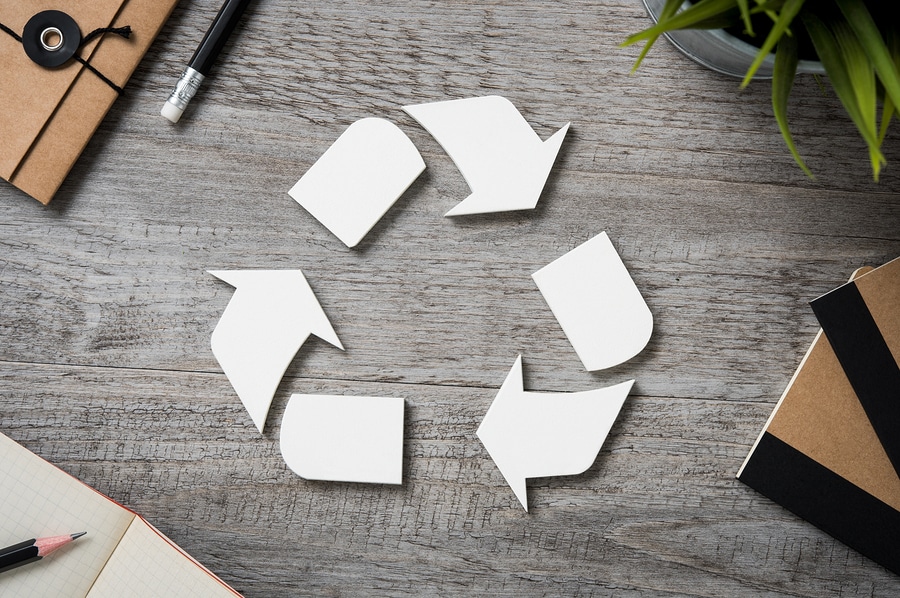Office Equipment Recycling 101

The sheer number of electronic devices the average company relies on these days to conduct business is staggering. A busy office could house dozens or hundreds of employees, each with a personal computer and/or laptop, a cell phone, and a host of other mobile devices. Then there are printers, scanners, copiers, servers, and all the other electronics that make up a functional business.
Purchasing and maintaining all of these necessary devices can be expensive and time consuming, but even worse is the frequency with which they must be updated and upgraded to ensure that your business remains competitive. When it’s out with the old and in with the new, you don’t simply want to toss old electronics in the trash. E-waste can contain toxic substances, which is why e-waste dumping is illegal.
When it’s time to upgrade office equipment, you’ll have to recycle the old stuff. Here’s what you need to know to make sure your business behaves responsibly and complies with environmental laws.
Toxic Waste
Electronics may contain any number of harmful chemicals and toxins. Some of the most common toxins found in e-waste include lead, mercury, cadmium, beryllium, bromine, chlorine, and arsenic, just for example. If e-waste is dumped, or worse, burned, these toxins can seep into soil, polluting ground water supplies, and be dispersed into the air.
How Recycling Works
While you can certainly exercise due diligence by dropping off your e-waste at a local recycling facility, the truth is that not all of these operations are reliable. Some companies strip out anything of value that can be recycled (like some metal parts) to sell and dump the rest in landfills.
Others ship e-waste wholesale to developing nations, where it is dumped in pits and even set on fire, releasing toxins into the environment and harming local populations. You want to make sure you don’t accidentally support one of these unscrupulous operations and open yourself up to risk – you as the generator will be left on the hook for environmental and consumer privacy law violations.
If you want to make sure you’re acting in a responsible manner to protect both the environment as well as any confidential data that may be lingering on devices, you need to work with a certified ITAD (IT asset disposition) company that complies with applicable laws, offers assurances, and provides proof of destruction and recycling.
Let Someone Else Do the Heavy Lifting
Your best bet when it comes to responsible and legal recycling practices is to partner with a certified ITAD service provider that offers secure pick-up, transport, storage, destruction and recycling processes. They may provide options to thoroughly wipe and refurbish devices for resale, or alternately, to shred them in order to assure complete data destruction.
Following destruction, they’ll recycle the remains and provide you with a Certificate of Destruction and Recycling to give you proof you did it the right way if you’re ever questioned or audited. The right service provider will do all of this in keeping with EPA and other applicable standards, and hold certifications from regulatory bodies like e-Stewards and R2, for example.
Sioux Falls area businesses looking to comply with e-waste recycling laws and do their part for the environment can contact the experts at SEAM today at 605-274-SEAM (7326) or online to learn more.
SEAM provides IT recycling and data destruction services including onsite shredding and hard drive wiping to South Dakota, North Dakota, Minnesota, Iowa, and Nebraska.
Schedule a pickup or contact us for more information.





